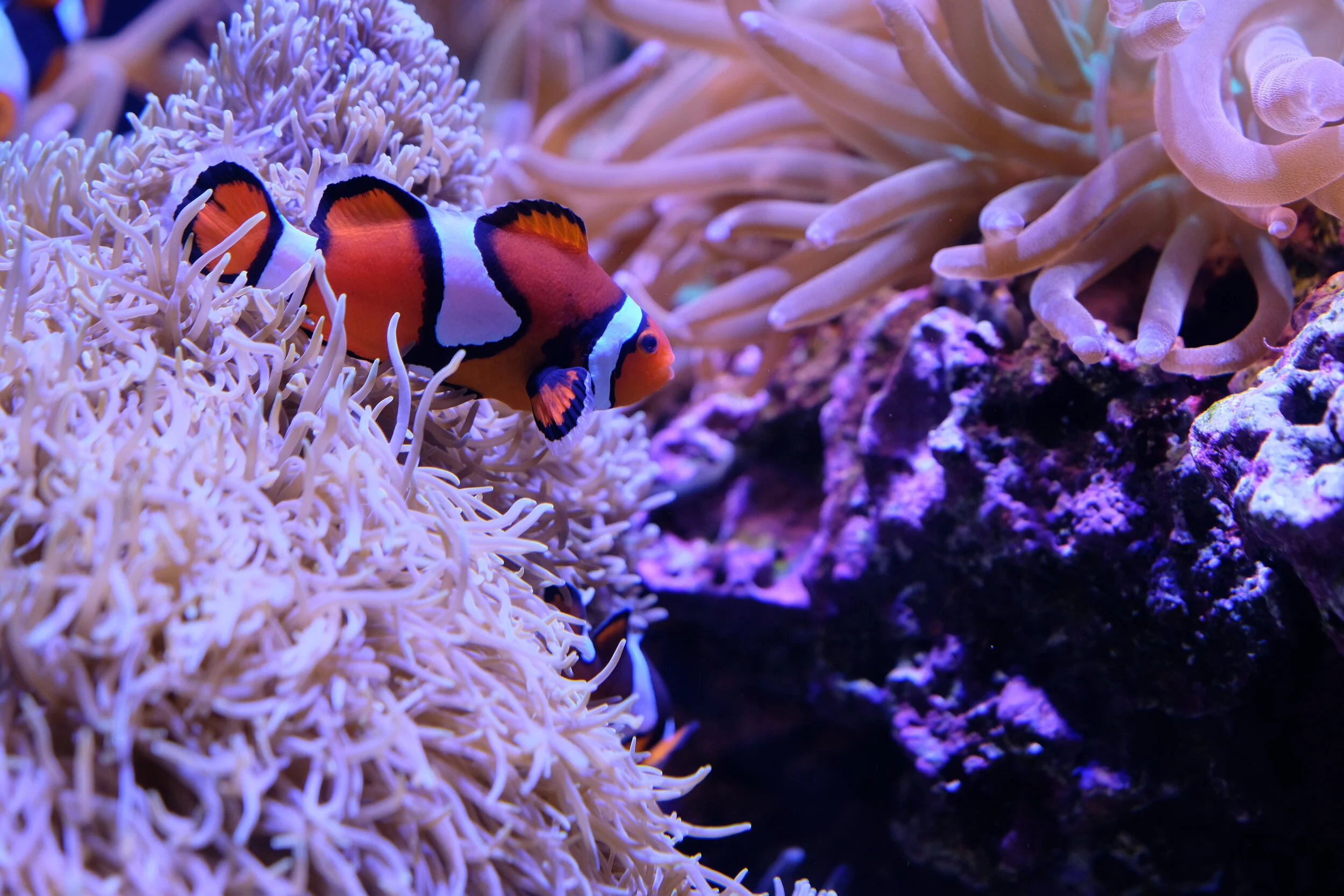The Clownfish and the Sea Anemone
Written by the founders of Ecotips- Tuula Moorehead and Sonia Mukherjee
What is Ecotips?
Ecotips is female founded organization and run by teens. We spread awareness of environmental problems and we teach people how to be more eco-friendly through our Instagram posts! Our goal is to inspire and encourage people to be more sustainable and help our earth!
What is a symbiotic relationship?
A symbiotic relationship is a long term biological interaction between two living organisms. There are three types of symbiotic relationships; mutualistic (meaning that both species benefit off each other), commensalistic (one species gain benefits and the other neither benefits nor is harmed), and parasitic (one organism, the parasite, lives off of another organism, the host, harming it and possibly causing death).
The relationship between the clownfish and sea anemone.
The clownfish and sea anemone have a mutualistic relationship, so they benefit off each other. These animals would not be able to survive without each other.
There are roughly 1,000 species of anemone, and only 10 can host clownfish. The largest benefit for the clownfish is that the sea anemone provides a shelter and protection. Sea anemones have harmful stinging cells called nematocysts, that can even paralyze larger marine creatures.
Clownfish are the only animal that is immune to this sting, so if they spot a predator, they can quickly swim into the anemone for protection. Because clownfish are so vulnerable, they tend to stay within a few yards of the host anemone. In addition to protection for the fish, sea anemones also protect the clownfish eggs. Clownfish will often lay their eggs near the anemone so that predators won’t come near the eggs.
In return, the clownfish also defends the sea anemone. They protect the anemone from small fish that try to eat it and they remove parasites that cling onto the anemone. Their waste also provides the sea anemone with essential nutrients such as nitrogen that encourage growth of algae. This helps the anemone grow and heal wounds faster.
Help! Without the clownfish, sea anemone, and many other amazing sea creatures, the ecosystem would suffer greatly.
Here are some tips about how YOU can help them:
When you see an animal in the wild, DO NOT touch them or alter their surroundings (leave no trace!)
Stop/minimize the amount of plastic you use
Reduce the amount of water you use
Participate in beach/park cleanups
Donate!
Educate yourself and learn more about the marine ecosystem
Encourage others to learn about and help these sea creatures!
Sources:
https://www.leisurepro.com/blog/explore-the-blue/clownfish-anemones-mutually-beneficial-arrangement/
https://www.nationalgeographic.com/animals/fish/group/clownfish/





